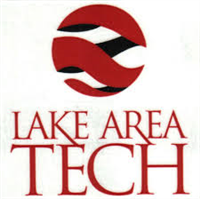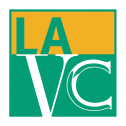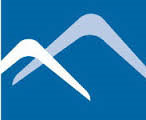What do they do?
Interview persons desiring to open accounts in financial institutions. Explain account services available to prospective customers and assist them in preparing applications.
Also known as:
Banking Services Representative, Customer Service Specialist, Financial Service Representative, Financial Services Representative, Member Service Representative, New Accounts Clerk, New Accounts Representative, Personal Banker, Relationship Banker, Retail Banker, Universal Banker
-
-1.3%
Change
Ranks #18 in job growth rate120Job Openings
Ranks #8 in net job growth
Looking for colleges that offer a specific major? Use the College Match Tool to find your best-matched schools and discover your estimated Net Price!
- Some college, no degree (32%)
- Bachelor's degree (27%)
- High school diploma equivalent (23%)
- Associate's degree (15%)
- Master's degree (2%)
- Less than high school diploma (1%)
- Doctorate or Professional Degree (<1%)
People in this career often have these skills:
- Active Listening - Giving full attention to what other people are saying, taking time to understand the points being made, asking questions as appropriate, and not interrupting at inappropriate times.
- Speaking - Talking to others to convey information effectively.
- Reading Comprehension - Understanding written sentences and paragraphs in work-related documents.
- Service Orientation - Actively looking for ways to help people.
People in this career often know a lot about:
- Customer and Personal Service - Knowledge of principles and processes for providing customer and personal services. This includes customer needs assessment, meeting quality standards for services, and evaluation of customer satisfaction.
- Sales and Marketing - Knowledge of principles and methods for showing, promoting, and selling products or services. This includes marketing strategy and tactics, product demonstration, sales techniques, and sales control systems.
- Administrative - Knowledge of administrative and office procedures and systems such as word processing, managing files and records, stenography and transcription, designing forms, and workplace terminology.
- English Language - Knowledge of the structure and content of the English language including the meaning and spelling of words, rules of composition, and grammar.
- Computers and Electronics - Knowledge of circuit boards, processors, chips, electronic equipment, and computer hardware and software, including applications and programming.
- Mathematics - Knowledge of arithmetic, algebra, geometry, calculus, statistics, and their applications.
- Economics and Accounting - Knowledge of economic and accounting principles and practices, the financial markets, banking, and the analysis and reporting of financial data.
People in this career often have talent in:
- Oral Comprehension - The ability to listen to and understand information and ideas presented through spoken words and sentences.
- Oral Expression - The ability to communicate information and ideas in speaking so others will understand.
- Written Comprehension - The ability to read and understand information and ideas presented in writing.
- Near Vision - The ability to see details at close range (within a few feet of the observer).
- Speech Recognition - The ability to identify and understand the speech of another person.
- Speech Clarity - The ability to speak clearly so others can understand you.
People in this career often do these activities:
- Execute sales or other financial transactions.
- Compile data or documentation.
- Enter information into databases or software programs.
- Type documents.
- Collect deposits, payments or fees.
- Explain regulations, policies, or procedures.
- Discuss goods or services information with customers or patrons.
- Obtain personal or financial information about customers or applicants.
- Interview employees, customers, or others to collect information.
- Refer customers to appropriate personnel.
- Respond to customer problems or complaints.
- Distribute materials to employees or customers.
- Schedule appointments.
- Sell products or services.
- Operate office equipment.
This page includes data from:

 Occupation statistics: USDOL U.S. Bureau of Labor Statistics Occupational Employment Statistics
Occupation statistics: USDOL U.S. Bureau of Labor Statistics Occupational Employment Statistics
 Videos: CareerOneStop, USDOL/ETA and the Minnesota Department of Employment & Economic Development
Videos: CareerOneStop, USDOL/ETA and the Minnesota Department of Employment & Economic Development


















